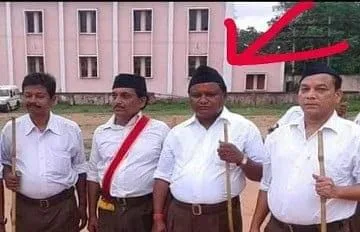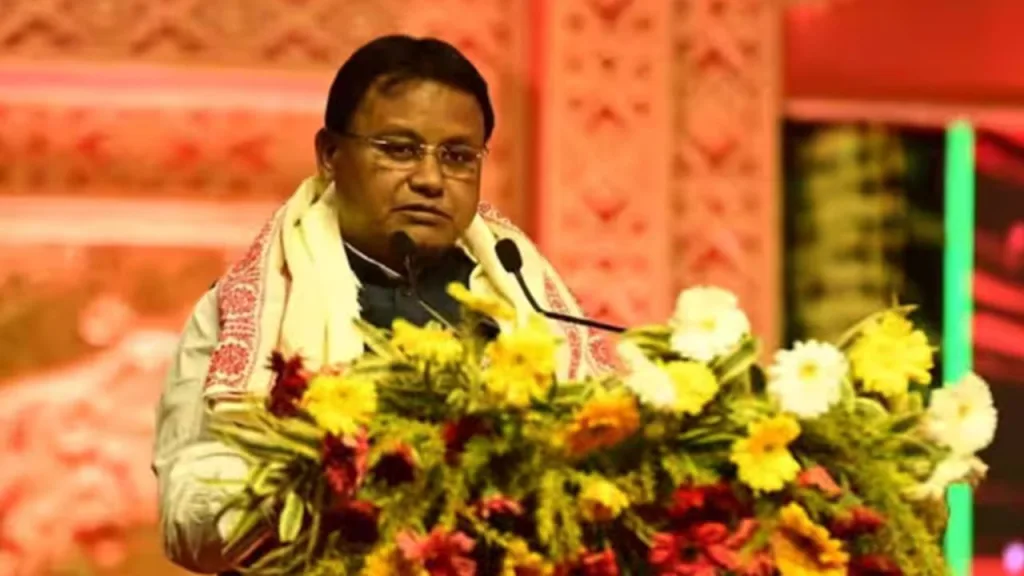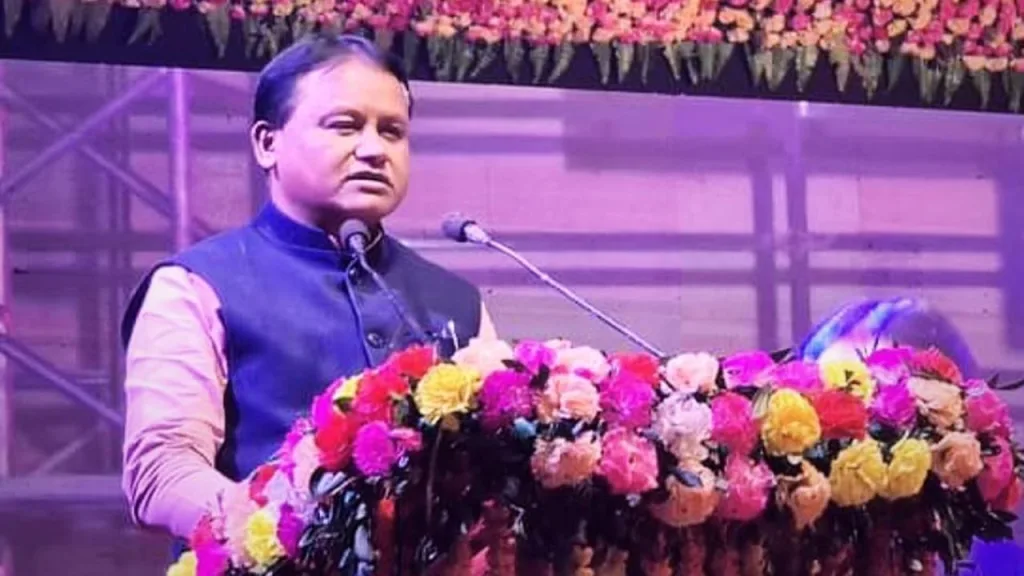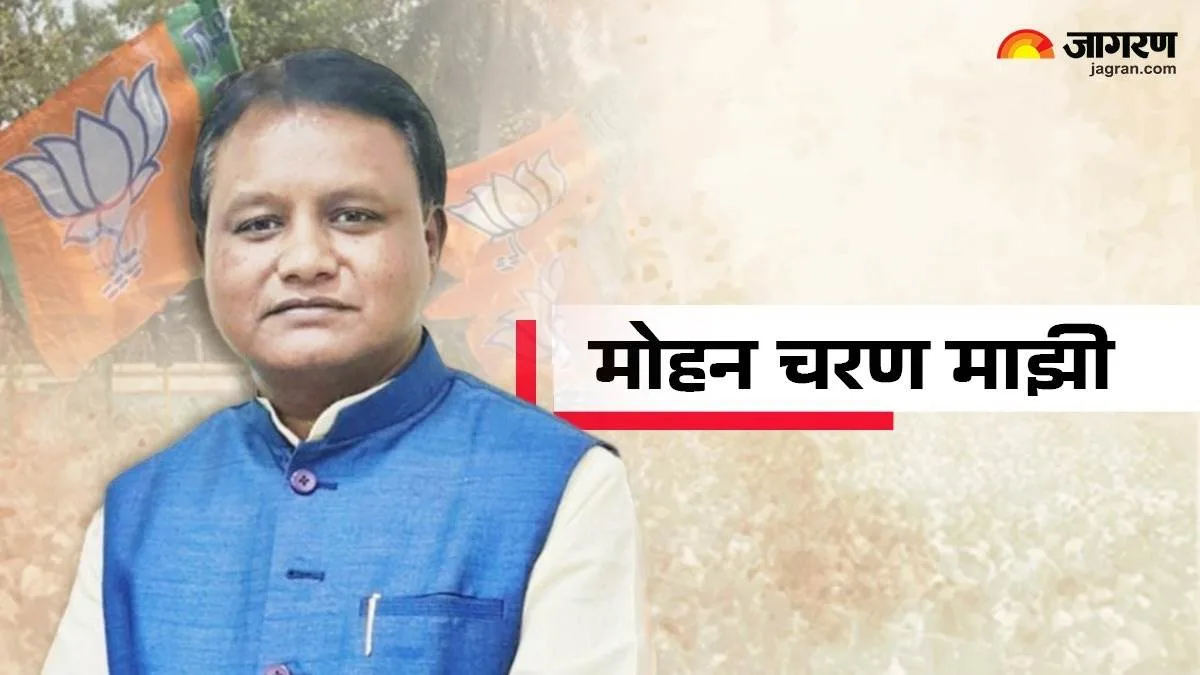Table of Contents
Historic Victory for BJP in Odisha
The recent state assembly elections in Odisha marked a watershed moment in the state’s political history, as the Bharatiya Janata Party (BJP) achieved an unprecedented victory. This triumph ended the 24-year dominance of the Biju Janata Dal (BJD) and positioned the BJP as the new ruling party in Odisha.
Key Highlights of the Election Results
- BJP’s Dominance: The BJP secured 78 seats out of the 147-seat assembly, showcasing a significant surge in their political influence in the state.
- BJD’s Decline: The BJD, which had been the ruling party for over two decades, managed to win only 51 seats, indicating a substantial loss of support among the electorate.
- Congress’s Position: The Indian National Congress, a traditional political force, trailed behind with 14 seats, struggling to regain its foothold in Odisha’s political landscape.
Factors Contributing to BJP’s Success
- Strategic Campaigning: The BJP’s extensive and strategically planned campaign played a crucial role in swaying the voters. High-profile visits and rallies by national leaders, including Prime Minister Narendra Modi, boosted the party’s visibility and appeal.
- Focus on Development: Promises of infrastructure development, job creation, and better governance resonated with the electorate, particularly in rural and tribal areas.
- Leadership Transition: The appointment of Mohan Charan Majhi, a respected tribal leader, as the Chief Ministerial candidate, helped the BJP connect with key voter demographics and present a credible alternative to the incumbent government.
Implications of the Victory
The BJP’s victory is expected to bring significant changes to Odisha’s political and developmental landscape. With a new leadership team headed by Mohan Charan Majhi, along with Deputy Chief Ministers KV Singh Deo and Pravati Parida, the party aims to address long-standing issues and drive comprehensive progress in the state.
However, the transition also comes with challenges. Managing expectations, ensuring effective governance, and addressing the concerns of various stakeholders will be critical for the new administration. The BJP’s ability to deliver on its promises and maintain public trust will be crucial for sustaining its newfound political dominance in Odisha.
Overall, the BJP’s historic win marks a new chapter for Odisha, filled with both promise and uncertainty, as the state embarks on this transformative political journey.
Mohan Charan Majhi: A Profile of the New Chief Minister
Mohan Charan Majhi’s appointment as the Chief Minister of Odisha represents a significant political shift in the state, bringing a seasoned yet fresh perspective to the administration. Here is a detailed profile of the new leader steering Odisha’s future.
Early Life and Education
Mohan Charan Majhi was born in Keonjhar, a region known for its rich mineral resources and significant tribal population. His early life in this region shaped his understanding of tribal issues and development challenges. He pursued higher education locally, which grounded him in the socio-economic dynamics of Odisha.

Political Career
Majhi’s political journey began at the grassroots level. He first entered the Odisha Legislative Assembly in 2000 as an MLA from the Keonjhar constituency, representing the Bharatiya Janata Party (BJP). Over the years, he has been elected multiple times, demonstrating his strong connection with the electorate and his effective leadership in the region.
As an MLA, Majhi has been a vocal advocate for tribal rights and development. His efforts in improving infrastructure, healthcare, and education in Keonjhar have been widely recognized. His leadership qualities and dedication to public service earned him a reputation as a dependable and proactive leader.
Key Political Achievements
- Infrastructure Development: Majhi has been instrumental in pushing for the development of roads, bridges, and other critical infrastructure in his constituency. His initiatives have significantly improved connectivity and economic opportunities in Keonjhar.
- Healthcare and Education: He has advocated for better healthcare facilities and educational institutions in tribal areas, striving to ensure that these essential services reach the most marginalized communities.
- Legislative Contributions: Majhi has been an active participant in legislative debates, focusing on policies that promote sustainable development and social justice.
Leadership Style
Majhi’s leadership style is characterized by his grassroots approach and emphasis on inclusive development. He is known for his accessibility and responsiveness to the needs of his constituents. His ability to connect with people across different strata of society has been a key factor in his political success.
Vision for Odisha
As the Chief Minister, Majhi aims to leverage his experience and leadership to drive Odisha towards comprehensive development. His priorities include:
- Economic Growth: Fostering industrial growth while ensuring environmental sustainability and social equity.
- Social Welfare: Expanding healthcare, education, and social services, particularly in rural and tribal areas.
- Good Governance: Promoting transparency, accountability, and efficiency in government operations to enhance public trust and service delivery.
Challenges Ahead
While Majhi’s appointment brings hope and a new direction for Odisha, he faces several challenges. These include addressing the economic disparities in the state, managing the environmental impact of industrial activities, and ensuring that development initiatives are inclusive and benefit all sections of society.
Conclusion
Mohan Charan Majhi’s rise to the position of Chief Minister is a testament to his enduring commitment to public service and his ability to lead with empathy and vision. As he steps into this pivotal role, the people of Odisha look forward to a period of dynamic and inclusive growth under his leadership.
Leadership Team: Dual Deputy Chief Ministers
In a strategic move to bolster governance and ensure a balanced administrative approach, the Bharatiya Janata Party (BJP) has appointed two Deputy Chief Ministers alongside the new Chief Minister Mohan Charan Majhi. The dual appointment of KV Singh Deo and Pravati Parida as Deputy Chief Ministers is expected to bring a blend of experience, regional representation, and diverse expertise to the state’s leadership.
KV Singh Deo: A Veteran Politician
KV Singh Deo, representing the Patnagarh constituency, is a seasoned politician with extensive experience in Odisha’s political landscape. Known for his strong leadership skills and deep understanding of state politics, Singh Deo has held various significant positions within the BJP and the state government. His background includes:
- Legislative Experience: Singh Deo has served multiple terms as an MLA, providing him with a comprehensive understanding of legislative processes and governance.
- Administrative Roles: He has held key ministerial roles in previous state governments, contributing to policy-making and implementation in sectors such as finance, housing, and public works.
- Strategic Influence: His involvement in party strategy and electoral campaigns has been crucial in strengthening the BJP’s position in Odisha.
Singh Deo’s role as Deputy Chief Minister is expected to leverage his experience to drive economic reforms, infrastructure development, and effective governance across the state.
Pravati Parida: Champion of Women’s Rights
Pravati Parida, the MLA from Nimapara, brings a focus on social justice and gender equality to the leadership team. Her political career has been marked by her advocacy for women’s rights and her efforts to uplift marginalized communities. Key aspects of her profile include:
- Grassroots Leadership: Parida has a strong connection with grassroots movements and has been instrumental in advocating for women’s empowerment and social welfare programs.
- Policy Advocacy: She has actively pushed for policies that promote education, healthcare, and economic opportunities for women and underprivileged groups.
- Community Engagement: Her approach to politics is deeply rooted in community engagement, ensuring that the voices of the most vulnerable are heard and addressed in the state’s development agenda.
As Deputy Chief Minister, Parida is expected to focus on enhancing social services, promoting gender equality, and ensuring inclusive development policies.
Balancing Governance
The dual deputy chief ministership is seen as a strategic move by the BJP to ensure a well-rounded and inclusive governance model. This structure aims to:
- Regional Representation: By including leaders from different parts of the state, the BJP ensures broader regional representation and addresses local issues more effectively.
- Diverse Expertise: Combining the economic acumen of Singh Deo with the social advocacy of Parida, the leadership team is well-equipped to tackle a wide range of governance challenges.
- Enhanced Accountability: The distribution of responsibilities among the Chief Minister and two Deputy Chief Ministers is likely to enhance accountability and streamline decision-making processes.
Challenges and Expectations
While this leadership structure brings several advantages, it also poses challenges in terms of coordination and ensuring cohesive policy implementation. Balancing the diverse priorities and managing potential conflicts within the team will be crucial for maintaining effective governance.
The people of Odisha have high expectations from this new leadership team. The dual Deputy Chief Ministers are anticipated to bring their unique strengths to the table, contributing to a governance model that is both dynamic and inclusive, ultimately driving the state towards comprehensive development and prosperity.https://youtu.be/CaCAaZOrd6A?si=4LvUirCTovFXi0kK
Challenges Ahead for the New Government
- Economic Recovery: The aftermath of the pandemic may have left the state’s economy strained. The government will need to focus on revitalizing key sectors, attracting investments, and creating job opportunities.
- Infrastructure Development: Despite progress, infrastructure gaps remain in rural and urban areas. The government must prioritize infrastructure development to improve connectivity, healthcare facilities, and access to basic amenities.
- Natural Disaster Management: Odisha is prone to cyclones, floods, and other natural disasters. Strengthening disaster preparedness and response mechanisms is essential to minimize the impact of such events on lives and property.
- Social Welfare: Ensuring the welfare of marginalized communities, including women, minorities, and tribal groups, requires targeted policies and programs. The government must address issues like poverty, education, and healthcare disparities.
- Environmental Conservation: Balancing industrial growth with environmental conservation is crucial. The government needs sustainable development policies to protect the state’s rich biodiversity and address issues like deforestation and pollution.
- Political Stability: Maintaining political stability and unity within the coalition government is essential for effective governance. Managing divergent interests and ensuring consensus on key decisions will be challenging.
Addressing these challenges will require concerted efforts, effective governance, and collaboration with various stakeholders, including civil society organizations and the private sector.

Public and Political Reactions
- Support from BJP Supporters: Supporters of the Bharatiya Janata Party (BJP) may view the move positively, seeing it as a strategic decision to strengthen governance and ensure representation from different regions and communities. They may appreciate the diverse expertise brought by the Deputy Chief Ministers.
- Criticism from Opposition: The opposition parties might criticize the decision, viewing it as a tactic to consolidate power within the BJP and questioning the need for dual Deputy Chief Ministers. They may also raise concerns about the potential for conflicts within the leadership team and its impact on governance.
- Public Expectations: The general public may have varying opinions. Some may welcome the appointment of leaders with experience and focus on specific issues like economic development and social welfare. Others may express skepticism about the government’s ability to effectively address the state’s challenges.
- Regional Sentiments: Reaction from different regions of Odisha may vary based on perceptions of regional representation in the leadership team. Communities that feel historically marginalized or neglected may welcome the inclusion of leaders from their areas, while others may feel underrepresented.
- Wait-and-See Approach: Some sections of society may adopt a wait-and-see approach, withholding judgment until they see tangible outcomes from the new government’s policies and initiatives. They may assess the government’s performance based on its ability to deliver on its promises and address pressing issues.
Overall, public and political reactions are likely to evolve based on the government’s actions, its ability to effectively address the state’s challenges, and the perceived impact of the dual Deputy Chief Ministers on governance and development.
Implications for Odisha’s Future Development
- Comprehensive Governance: With two Deputy Chief Ministers focusing on different areas of expertise, such as economic development and social welfare, the government may adopt a more holistic approach to governance. This could lead to a more balanced allocation of resources and attention to various sectors, ultimately driving overall development.
- Regional Representation: By including leaders from different regions of Odisha in prominent positions, the government can ensure that the diverse needs and priorities of various communities are adequately addressed. This could help in reducing regional disparities and promoting inclusive development across the state.
- Policy Innovation: The presence of multiple decision-makers with diverse backgrounds and perspectives could foster policy innovation and experimentation. The government may explore new approaches to tackling longstanding challenges and leverage the strengths of each Deputy Chief Minister to implement effective solutions.
- Enhanced Accountability: With a leadership team consisting of the Chief Minister and two Deputy Chief Ministers, there may be greater accountability in governance. The distribution of responsibilities could lead to clearer lines of authority and better oversight of key initiatives, reducing bureaucratic bottlenecks and ensuring timely implementation of policies.
- Stakeholder Engagement: The government’s inclusive leadership structure may facilitate greater engagement with various stakeholders, including civil society organizations, business leaders, and community groups. This could result in more participatory decision-making processes and a stronger sense of ownership among citizens regarding development initiatives.
Overall, the appointment of dual Deputy Chief Ministers signals a potential shift towards a more collaborative and inclusive approach to governance in Odisha, which could have positive implications for the state’s future development trajectory. However, the success of this model will depend on effective coordination among the leadership team, sustained political will, and the ability to translate vision into tangible outcomes for the people of Odisha.

Controversies Surrounding the Election Results
- Allegations of Electoral Malpractice: Accusations of electoral malpractice, such as voter intimidation, tampering with electronic voting machines (EVMs), or irregularities in the voting process, may lead to controversies. Opposition parties or disgruntled candidates may contest the legitimacy of the results based on such allegations.
- Discrepancies in Voter Registration: Issues related to voter registration, including discrepancies in voter lists, allegations of voter suppression, or concerns about the accuracy of voter rolls, could raise questions about the fairness of the electoral process.
- Political Violence: Incidents of political violence, clashes between rival party supporters, or allegations of coercion and intimidation during the campaigning period may cast doubts on the integrity of the election outcomes. Instances of violence or misconduct may trigger calls for electoral reforms or investigations into the conduct of the elections.
- Social Media Manipulation: The spread of misinformation, fake news, or propaganda on social media platforms during the election campaign may influence voter perceptions and behaviors. Concerns about the role of social media in shaping electoral outcomes and its potential for manipulation could fuel controversies.
- Legal Challenges and Recounts: In some cases, losing candidates or political parties may resort to legal challenges, seeking recounts or judicial interventions to contest the election results. Disputes over the interpretation of electoral laws or procedural irregularities may prolong the resolution of controversies.
- Partisan Media Coverage: Biased or sensationalized media coverage of the election results, favoring certain political parties or candidates, may exacerbate tensions and fuel controversies. Allegations of media manipulation or propaganda could undermine public trust in the electoral process.
Addressing controversies surrounding election results requires transparent and impartial investigation mechanisms, adherence to legal procedures, and a commitment to upholding democratic principles. Political stakeholders, electoral authorities, civil society organizations, and the judiciary play crucial roles in ensuring the integrity and legitimacy of electoral outcomes. For more such article you can visit our link https://telecastindia.in/machu-picchu-a-marvel-of-incan-engineering-and-a-victim-of-overtourism-part-1/
Discover more from Telecast India
Subscribe to get the latest posts sent to your email.

